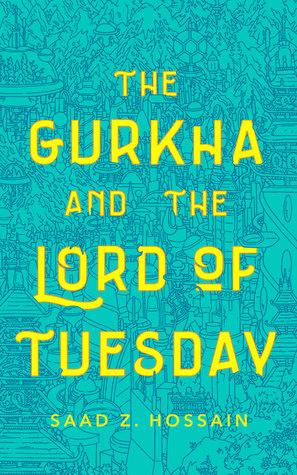 The Gurkha and the Lord of Tuesday by Saad Z. Hossain
The Gurkha and the Lord of Tuesday by Saad Z. Hossain Format: eARC
Source: supplied by publisher via NetGalley
Formats available: paperback, ebook
Genres: fantasy, mythology, science fiction
Pages: 167
Published by St. Martin's Press on August 13, 2019
Purchasing Info: Author's Website, Publisher's Website, Amazon, Barnes & Noble, Kobo, Bookshop.org
Goodreads
When the djinn king Melek Ahmar wakes up after millennia of imprisoned slumber, he finds a world vastly different from what he remembers. Arrogant and bombastic, he comes down the mountain expecting an easy conquest: the wealthy, spectacular city state of Kathmandu, ruled by the all-knowing, all-seeing tyrant AI Karma. To his surprise, he finds that Kathmandu is a cut-price paradise, where citizens want for nothing and even the dregs of society are distinctly unwilling to revolt.
Everyone seems happy, except for the old Gurkha soldier Bhan Gurung. Knife saint, recidivist, and mass murderer, he is an exile from Kathmandu, pursuing a forty-year-old vendetta that leads to the very heart of Karma. Pushed and prodded by Gurung, Melek Ahmer finds himself in ever deeper conflicts, until they finally face off against Karma and her forces. In the upheaval that follows, old crimes will come to light and the city itself will be forced to change.
My Review:
Karma is a stone cold bitch. Of course, we all already know that. It’s one of the fundamental laws of the universe, right up there with Murphy.
But when the djinn King Melek Ahmar waks up after a 4,000+ year nap, the version of Karma who is running the nearby city/state/corporation of Kathmandu is more literally a bitch than he, or even we, imagined.
It’s also true that mankind creates their gods in their own image. Based on Kathmandu, we also create our utopias in our image as well. The difference is that we create deities in the image of what we actually are, while we create utopias in the image of what we’d like to be.
When the Lord of Tuesday and his Gurkha sidekick (or perhaps that’s the other way around) arrive in Kathmandu, those two contradictory images come into sharp and broken-bottled conflict. Karma, the AI running the city, gives everyone what they need. Melek Ahmar games the system by using his power to give everyone what they want. No matter how perverse or destructive it might be.
What the Gurkha Bhan Gurung wants is what he’s wanted for over 40 years. He wants revenge on the man who sold his family into distant death, who stole his home and his property and who has lived off the riches he amassed from the misery he caused every day since.
More than that, Bhan Gurung wants to deliver karma, up close and personal, on the AI Karma who made it all possible.
No matter how much blood and how many bodies he has to wade through to make it happen.
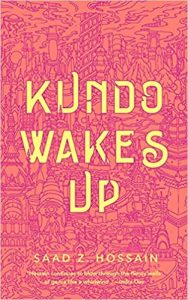 Escape Rating A: This is a book that has repeatedly popped up for me as a possible read, but hadn’t quite leapt to the top of the TBR pile. But in this week of constant doomscrolling, it suddenly seemed like the time.
Escape Rating A: This is a book that has repeatedly popped up for me as a possible read, but hadn’t quite leapt to the top of the TBR pile. But in this week of constant doomscrolling, it suddenly seemed like the time.
And now I understand why this got so much buzz and was nominated for so many awards when it came out two years ago. Because it’s just awesome. It’s also a story that does not go where you think it will, which just adds to the fun. And it has a high snark quotient, which just makes it even more my jam than I expected it would be.
At first, it seems like Melek Ahmar is going to be a figure of either fun or terror. Or possibly the first right up until he turns into the second. But he is, to at least some extent, laughing at himself. After all, what he seems to want most is a bunch of people to get drunk and have a party – or possibly a drunken orgy – with.
What he finds is a world vastly different from when he went to sleep. To the point where he is a bit lost and easy prey for a single-minded manipulator like Bhan Gurung. Gurung wants to move the city, and Melek Ahmar looks like a really big lever.
Or possibly just a really big tool. Either way, Gurung thinks Melek will be useful. And he’s right.
What makes this story, however, is the way that it manages to comment on so much of the present, no matter its futuristic setting.
The AI Karma is a fair and impartial tyrant, and she’s created a utopia for the people who live within her boundaries. When Melek and Gurung “invade” Kathmandu, they set off a cascade of events that pokes holes in the beliefs about Karma’s impartiality, her fair-mindedness, and her benevolence.
And in the process we end up questioning her purpose, her intent and especially her value system. A value system that is the heart of her seemingly benevolent dictatorship. If you squint, it makes the reader question both capitalism and consumerism, along with a whole bunch of other -isms that are currently powering our world towards unstoppable climate change, extremes of income inequality and other outcomes that look so dire in the future because no one in the present is willing to upset the status quo.
Which in a way is what Karma enforces even as she seems to be doing the opposite. The way she operates points out to the reader that maintaining the status quo is never truly neutral.
And that no one who operates in the political sphere, not even a supposedly impartial AI, can keep their hands clean.
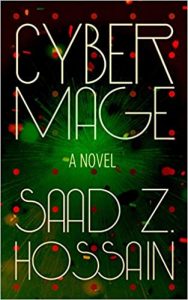 There have been a few books in the last couple of weeks where the sum of their individual parts did not manage to equal up to a whole. Take yesterday’s book as an example, although that’s not the only one in recent memory. This one, however, managed that feat of the whole being greater than the sum of the parts, to the point where it feels like this one is still adding itself up and talking back at me about more and more ideas that it touched on.
There have been a few books in the last couple of weeks where the sum of their individual parts did not manage to equal up to a whole. Take yesterday’s book as an example, although that’s not the only one in recent memory. This one, however, managed that feat of the whole being greater than the sum of the parts, to the point where it feels like this one is still adding itself up and talking back at me about more and more ideas that it touched on.
All of which is making me even more excited for the two books by this author that are now rapidly moving up my TBR pile, Kundo Wakes Up, set in a different part of this same world, and Cyber Mage, which promises to be completely different. I’m very much looking forward to reading both. Soon!

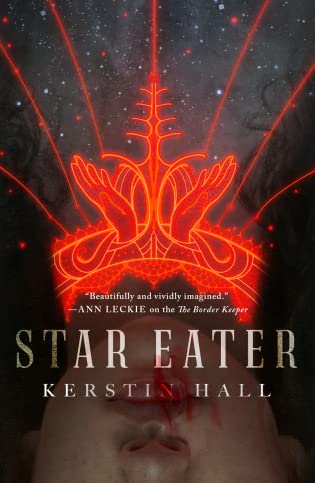 Star Eater by
Star Eater by  Escape Rating C+: This story is a hot mess and so is its protagonist Elfreda Raughn. And the story is not nearly as high-falutin’ or well-put together as the blurb would lead one to believe.
Escape Rating C+: This story is a hot mess and so is its protagonist Elfreda Raughn. And the story is not nearly as high-falutin’ or well-put together as the blurb would lead one to believe.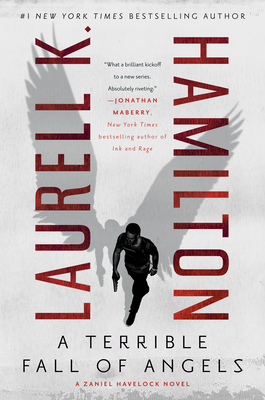 A Terrible Fall of Angels by
A Terrible Fall of Angels by 
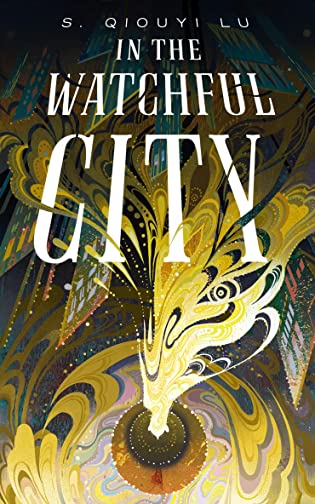 In the Watchful City by
In the Watchful City by 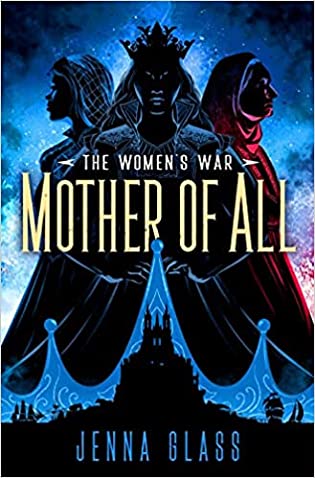 Mother of All (Women's War, #3) by
Mother of All (Women's War, #3) by  The story of Women’s War is a single story spread over three not insubstantial parts, meaning that it begins in the first book,
The story of Women’s War is a single story spread over three not insubstantial parts, meaning that it begins in the first book, 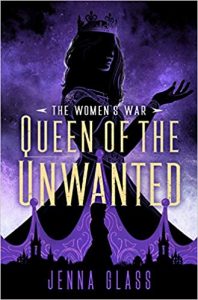 Escape Rating A: Short summary of the series – loved the first book, wasn’t all that thrilled with the second but it was necessary, loved the third book. This book. Mother of All brought this epic trilogy to an appropriately epic conclusion, and it made wading through all the setup and political positioning and maneuvering in the second book worth the wade. Also worth the wait of anticipating this conclusion.
Escape Rating A: Short summary of the series – loved the first book, wasn’t all that thrilled with the second but it was necessary, loved the third book. This book. Mother of All brought this epic trilogy to an appropriately epic conclusion, and it made wading through all the setup and political positioning and maneuvering in the second book worth the wade. Also worth the wait of anticipating this conclusion. Pirate's Promise (Sentinels of Savannah #5) by
Pirate's Promise (Sentinels of Savannah #5) by 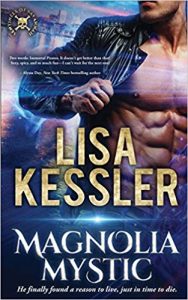 Escape Rating B+: I got started in this series in
Escape Rating B+: I got started in this series in  One Day All This Will Be Yours by
One Day All This Will Be Yours by  Another book that did something similar, with more romance and less snark, is last year’s
Another book that did something similar, with more romance and less snark, is last year’s 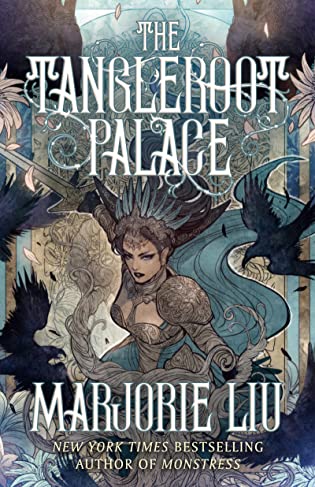 The Tangleroot Palace: Stories by
The Tangleroot Palace: Stories by 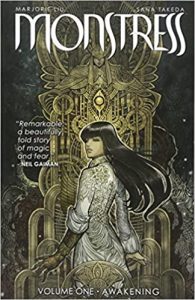 I picked this up not for her multiple award-winning
I picked this up not for her multiple award-winning 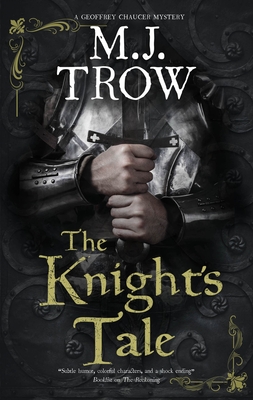 The Knight's Tale (A Geoffrey Chaucer Mystery #1) by
The Knight's Tale (A Geoffrey Chaucer Mystery #1) by  The Knight’s Tale is the first tale of Geoffrey’s Chaucer’s masterpiece,
The Knight’s Tale is the first tale of Geoffrey’s Chaucer’s masterpiece, 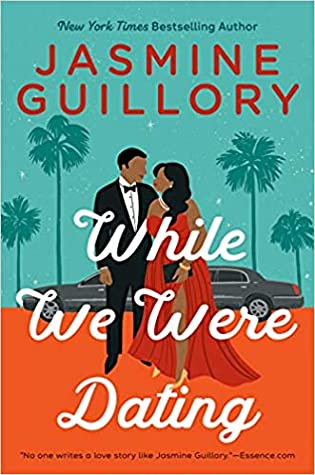 While We Were Dating (The Wedding Date, #6) by
While We Were Dating (The Wedding Date, #6) by  Once upon a time in 2018 there was a book titled
Once upon a time in 2018 there was a book titled  Escape Rating A-: My two absolute favorite books in this series are the first book,
Escape Rating A-: My two absolute favorite books in this series are the first book,